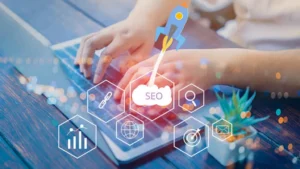The technology trends shaping the world in the next decade are already emerging. Big data, artificial intelligence, and blockchain have been the buzzwords in the last few years. But as we look ahead to 2023, there are major emerging technologies that will have a huge impact on how we live, work, and play.
They include;
Augmented reality: AR is making its way into our daily lives through different apps. But it has real-world applications, too, from helping surgeons perform operations remotely to improving shopping experiences for customers by letting them see what bathroom mirrors look like before buying them or what clothes would look like on their bodies before buying them online.
Besides, AR is also being used by insurance companies to assess injuries and determine compensation claims. This technology will continue to grow in the next 20 years as it helps improve patient care, reduce costs and eliminate errors during operations.
The Internet of Things (IoT): The IoT refers to the network of, vehicles, buildings, physical devices plus other items, embedded with, software, electronics, actuators, sensors, and network connectivity enabling these objects to gather and exchange info. This will enable more personalized experiences across all industries and within our homes and workplaces. It will also be an area where new business models emerge, and traditional companies start to look at how they can benefit from it too.
Digital immune system: This is a new model of cybersecurity where software can detect and respond to threats before they can cause damage or loss. While existing solutions already offer some protection against cyberattacks, they are limited in their ability to detect and protect against emerging threats as they emerge.
Companies are now embracing technology trends to protect their data by using artificial intelligence (AI) and machine learning technology. AI-powered security systems can detect suspicious activities and alert users before they do any damage. These solutions can be used for both physical and digital assets, helping companies keep their systems safe from hackers.
Multi-cloud computing: As more companies adopt a multi-cloud strategy to enable hybrid cloud deployments, organizations are working to build an infrastructure that supports multiple deployment models and environments. This requires a flexible infrastructure that can scale up or down depending on the workload being run at any given time.
AI-powered business intelligence: Artificial intelligence (AI) is not just changing how consumers interact with technology. It’s transforming how organizations do business as well. Businesses have started using AI to improve customer service, streamline operations, and make better decisions while saving money. As organizations continue to invest in AI technologies for their business intelligence needs, they will see increased productivity and efficiency throughout their organization.
Key Takeaway
In the past few years, we’ve seen a major shift in how companies use technology to enhance their business. The rise of artificial intelligence (AI), machine learning, and other technologies have changed the way companies do business. It’s no longer about having an app or website. It’s about using those channels to create an amazing customer experience and drive sales.



